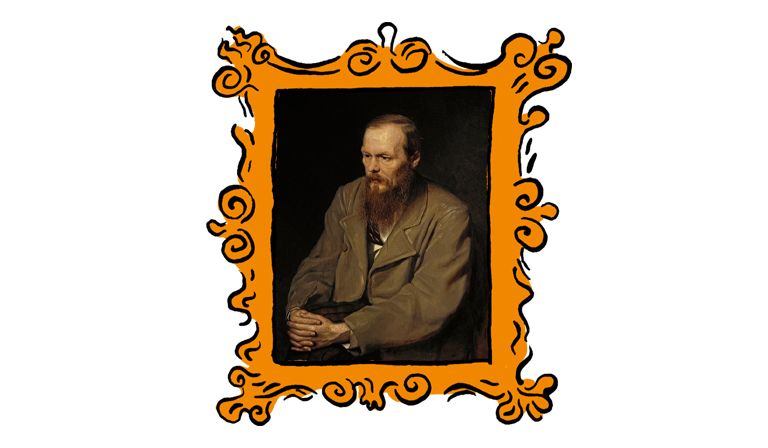Fyodor Dostoevsky—rigorous dialectician and grand inquisitor into the human soul—is having a moment. The American “new right” has enlisted the Russian author in the debate over “cancel culture”; and, simultaneously, his lesser-known works are receiving unprecedented attention among Gen Z.
The latter trend is thanks, in no small part, to TikTok. Influencers on the social media site are recognising Dostoevsky’s “astonishing cultural resonance” for young people and promoting him to hundreds of thousands of followers. Last year, they made White Nights, a novella that even ardent Dostoevskyites might not have read, the fourth most-bought translated book in the UK.
Dostoevsky has a natural appeal to young people. Most of his main characters, including Raskolnikov, Prince Myshkin and Alyosha Karamazov, are in their early or mid-twenties. The diarist of the surprise bestseller White Nights is 26 (the same age as Dostoevsky when he wrote it) and the narrator of Notes from Underground revisits his life as a 24-year-old. These heroes (or antiheroes) are idealists, social outsiders and sufferers from existential angst.
Like millions of young people in Britain, many of Dostoevsky’s protagonists endure loneliness. The narrator of White Nights writes in his first paragraph that “It suddenly seemed to me that I was lonely, that everyone was forsaking me.” Beset by unrequited love, he wanders the streets of Saint Petersburg in the perma-light of summer and, prefiguring the Gen Z trend for “journaling”, records his feelings in a diary. TikToker Jack Edwards, “the internet’s resident librarian”, called White Nights “one of the most devastating books about love I’ve ever experienced”.
Loneliness, or rather alienation, dominates Notes from Underground—an existential novella more accurately (but less catchily) translated as Notes from Under the Crawl Space. Notes, an established part of the Dostoevsky canon, had a fourfold rise in sales during the pandemic. Like White Nights, it has boomed due to interest on TikTok. Notes’s direct prose and constant self-examination mirrors much of the content created for the app. Reading the line “I am well educated enough not to be superstitious, but superstitious I am”, it’s hard not to think of the popularity of astrology among the young.
The influencer Taylor Rosen described Notes from Underground as “one of the greatest short classics”. Put the emphasis on the short. Like White Nights, Notes’s brevity appeals to young people, many of whom set targets for how many books they want to read per month or per year. Another influencer, Hali Brown, told the Guardian that Gen Z has “a lot of appreciation for literary fiction, memoirs, translated fiction and classics in particular”. Notes, a fictionalised memoir, is all four.
This being Dostoevsky, at the same time that he is being lionised by Gen Z bibliophiles, he is being endorsed by a very different cohort: figures connected to Donald Trump.
Last November, Elon Musk—who has now moved on from government, of course, but was spotted shaking hands with the president at Charlie Kirk’s memorial service—tweeted about The Brothers Karamazov. Peter Thiel, the mega-entrepreneur pivotal to the rise of JD Vance, told the Wall Street Journal that there is “no better way to think about human irrationality than to read Dostoevsky”.
But the most committed devotee among the new right is Jordan Peterson, a self-styled defender of western civilisation. Peterson, the movement’s premier intellectual, ranked The Brothers Karamazov and Crime and Punishment as second and third on his list of favourite books.
Peterson, in various lectures and podcasts, applauds Dostoevsky’s commitment to fully understanding different points of view. He follows the great literary critic Mikhail Bakhtin, who wrote that “a genuine polyphony of fully valid voices is the chief characteristic of Dostoevsky’s novels”. The classic example is the chapter ‘Rebellion’ from The Brothers Karamazov. In it, Dostoevsky, an Orthodox Christian, presents arguably the greatest exposition—in fiction or philosophy—of the problem of evil.
For Peterson, Dostoevsky’s commitment to open debate is the antidote to “left-wing cancel culture”. This may be, but it’s worth saying that the Peterson-aligned new right is similarly censorious. It’s not the “snowflake liberals” who are banning US schools and libraries from stocking books ranging from Toni Morrison to Margaret Atwood—nor, indeed, forcing the suspension of Jimmy Kimmel Live!.
It’s also ironic that someone hell-bent on “saving the west” is so enthralled by someone who hated it. The Dostoevsky of White Nights may have been a pro-European political radical, but his views changed after he endured ten years in a Siberian labour camp for fomenting revolution. Following his internment, Dostoevsky became a conservative who espoused Russian nationalism. Whereas Peterson maintains the superiority of the west, Dostoevsky had an uncompromising belief in the superiority of Russia. In a letter from 1870, he writes about his “deep personal revulsion” to Europe and acknowledged his “prejudices”. For the Dostoevsky who wrote The Brothers Karamazov, it is Mother Russia, together with her Orthodox Church, who will save the world.
Despite the interest from bookish members of Gen Z and figures in the new right, ours is not a Dostoevskian age. The modern world rarely encourages us to interrogate our most cherished beliefs. In contrast, Alyosha, the novice monk and hero of The Brothers Karamazov, says: “It is possible that I do not believe in God.” Dostoevsky, who was devoted to his faith, wrote that he had “disbelief and doubt”.
The conflicts of ideas in Dostoevsky’s major novels are no echo chamber, but an orderly version of the Tower of Babel. As Bakhtin wrote, “There is no final word in the world of Dostoevsky.” Along with his deep examination of the human soul, that’s why he endures. His themes aren’t timely, they’re eternal.
Fyodor Dostoevsky is so hot right now
Thanks to TikTokers and the Trump movement, the Russian author is newly popular in 2025. But is ours truly a Dostoevskian age?
September 25, 2025












